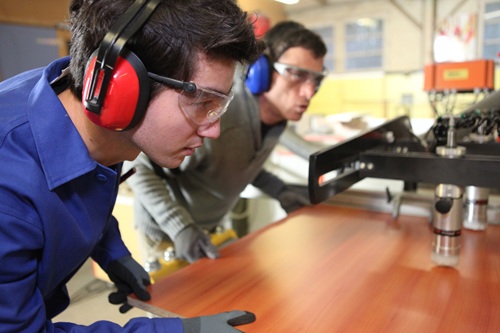For the foreseeable future this year, all conferences and events will either not take place, or go digital. The government made this clear in its updated guidance of 24 June, banning all gatherings of over 30 people and ordering venues to remain closed.
Features
What’s the future for conferences and events?
Such circumstances are forcing organisers to be resourceful. Informa’s Digital Week took the slot in the calendar marked for the Safety Expo, from 18 to 22 May. It featured all the strands of the live event: wellbeing, health, safety and the future of work.
Safety Management reports on the highlights of Digital Week, considers the future of attending events and asks two industry spokespeople what they think about returning to venues.
Virtual possibilities
Conference organisers will be keen to return to normal once it is safe to do so from a Covid-19 perspective. But technology is fast changing to offer a new kind of experience to people attending work-related events.
 Will we ever go back, and in the same numbers to conference halls currently sitting empty?
Will we ever go back, and in the same numbers to conference halls currently sitting empty?
Virtual event venues – where companies offer broadcast studio quality services to facilitate webcasting and event design – are on the rise according to event industry website, the event manager. In a souped-up version of changing your Zoom background, it may be possible to watch a panel debating in front of a roaring fire or in a hotel in Singapore, saving you the air fare of flying there.
Digital and live – the perfect complement?
Others see the future of digital and live events co-existing and complementing each other. “We know that making digital connections aren’t a direct substitute for face-to-face networking but the engagement levels that we saw during Digital Week demonstrate that they can be a valuable complement to a live event programme,” says Charlotte Geoghegan, event manager at Informa, organisers of Digital Week and the Safety Expo. “This is particularly true when you have audiences looking to consume content that is created in a far more spontaneous fashion than physical event cycles allow.”
With Microsoft announcing that all its events will be digital only until July 2021, others speculate that digital will be the death knell of the live event. With the capacity to broadcast to millions of people, no matter where they are, organisers may decide that there’s more money to be made from unlimited audience numbers.
However, economics don’t yet justify the shift. Digital Week pulled in 8,000 unique visitors over the week, half the number live Safety Expo usually attracts (14,000). Mark Bennardo, founder and creative director of Transperia Group, Inc., speaking to the event manager website, says the industry will have to work hard at innovating when it comes to delivering successful digital experiences.
“We can’t just ‘lift and shift’ our programs and content from a live setting to a virtual platform, and think they will work the same. We no longer have the benefit of a captive audience sitting in a ballroom. We no longer control their schedule. We no longer own the environment. The rules have completely changed.”
Read our report of Digital Week highlights here: bit.ly/2BvatAa
FEATURES

Young drivers and work-related road risk: why employers must act now
By Simon Turner, Driving for Better Business on 06 February 2026
Young drivers have a higher risk of being involved in road collisions due to factors such as their inexperience, so when employing them to drive for work, it is vital they receive the right support to help them grow into safe professionals behind the wheel.

Financial stress: why and how it affects workplace safety
By Chloe Miller, freelance writer on 06 February 2026
Financial worries can lead to cognitive impairment that increases the risk of workplace accidents, so it’s essential employers provide financial education and confidential support for workers who may be struggling with problems like debt and unexpected living expenses.

Noise control: what I wish employers knew before making the big spend
By Gill Cussons, UK Hearing Conservation Association (UKHCA) on 02 February 2026
Employers often spend significant sums attempting to reduce noise levels from plant and machinery without first considering lower cost, but often more effective approaches, such as properly maintaining mechanical parts like guards, fans and compressed air systems.



